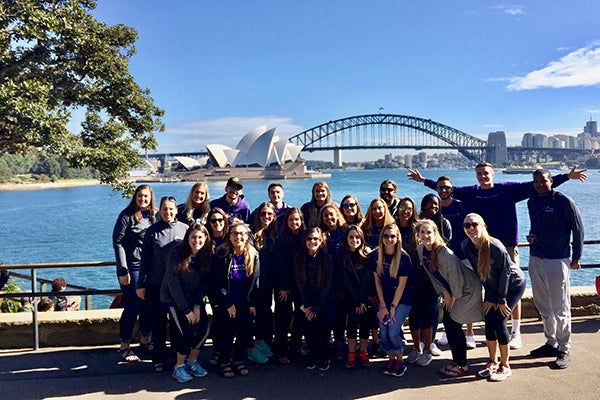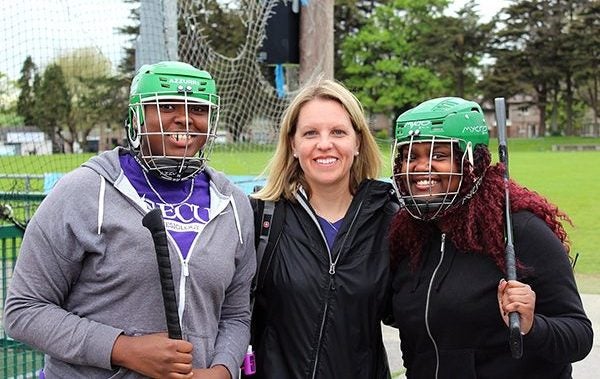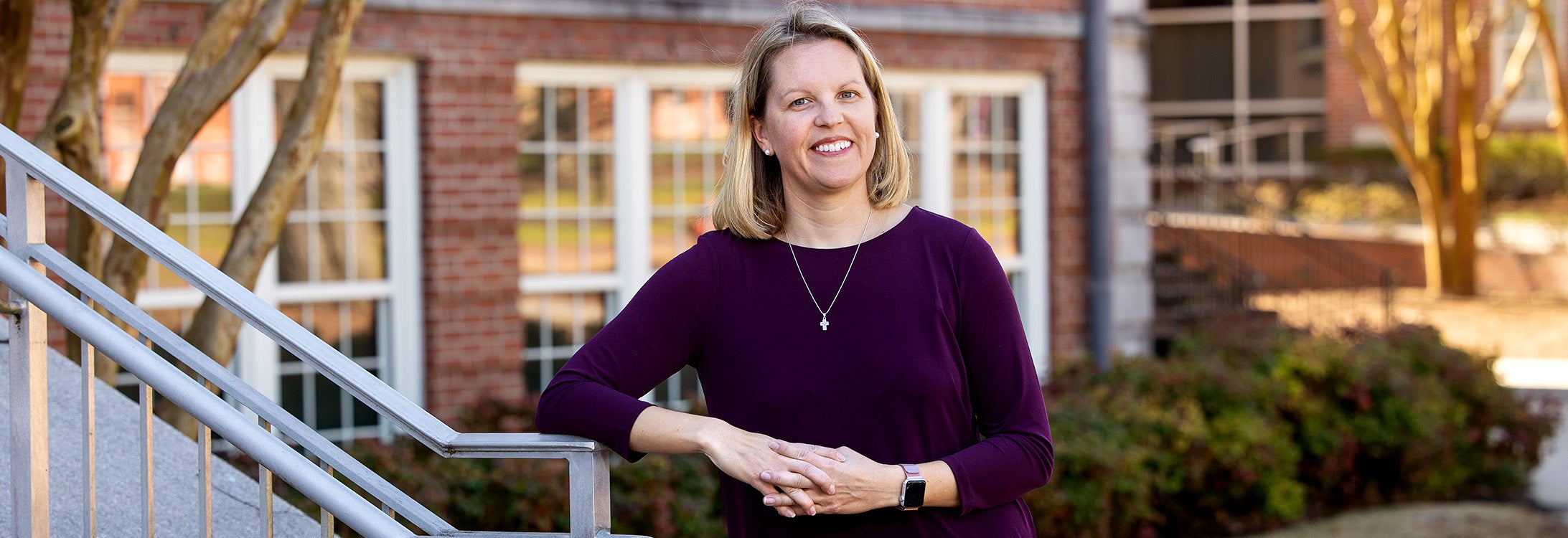WIDE WORLD OF SPORTS
Warner takes students around the world to teach them about sport
As a student, Dr. Stacy Warner didn’t participate in study abroad opportunities.

Warner took a group of 23 students to Australia in 2017. (Contributed photo)
“As a first-generation college student and student-athlete, studying abroad never seemed like an option for me.” Warner said. “It was one of those things I felt like I missed out on as a college student. When I arrived at ECU, I learned very quickly that ECU and the Office of Global Affairs were committed to breaking down these barriers for students and were truly committed to preparing students to work in a global, multicultural society.”
Warner is a professor of sports studies and sports management in the ECU Department of Kinesiology in the College of Health and Human Performance. When she began teaching at ECU in 2010, she started organizing study abroad opportunities for her students. As a result, she received this year’s ECU Achievement in International Teaching Award, which honors an outstanding faculty member who has demonstrated excellence and commitment in teaching in a variety of international educational contexts.
She said being internationally minded helps students improve their critical-thinking skills.
“I’m constantly trying to challenge students to think about sport and how it could be different,” she said. “When someone has grown up in the U.S., participated in the American sport model and likely had a positive experience, it can be especially difficult to shift their thinking towards not what sport is or has been for them but what it could be and how it could better society. Sport can be used as a powerful platform for positive social change, but if we only think within the American sports model, it becomes limiting.”
Warner said the U.S. is one of the few nations that ties sport and education together.

Warner poses with students Danielle Perry, left, and Brandee Gratee during a trip to a hurling club in London in 2018. (Contributed photo)
“We expect our school systems to offer sport opportunities, and our college sports system is especially unique,” she said. “Because of this system, U.S. sport participation often ends after college and is geared toward promoting elite sport rather than mass sport participation. It’s one of the reasons that trends have shown as competitive sport opportunities have increased, so have our obesity rates. U.S. adults tend to passively consume sport, and when sport is viewed as an activity for just youth or professional athletes, it becomes limiting.
“So, it is eye opening for many students to see sport operate differently with a focus on mass participation and the community and health benefits,” she added. “When this shift in thinking occurs, students start to see the power of sport for social change. It no longer is limited to a professional athlete taking a stand for social justice or the economic impact of the Super Bowl. They start to think about how grassroots sports organization can positively impact public health, bring communities together, improve the environment and local economy and even reduce crime.”
For example, in 2017 and 2019, Warner led groups of students on a trip to Australia and New Zealand, where they participated in academic presentations with faculty and industry professionals at universities in Sydney and Auckland, the New South Wales Institute of Sport, local sports clubs, a local sports council, historical sites and other organizations.
“Dr. Warner has demonstrated time and again that sport studies is global,” said Dr. Anisa Zvonkovic, dean of the College of Health and Human Performance. “In her emphasis of sport for community and social change, she has brought what we at ECU know about regional transformation to the world.”
Former student Emma O’Brien, a 2020 graduate who now works as a growth coordinator with USA Triathlon in Colorado Springs, Colorado, credited Warner with showing her opportunities in sport beyond playing and coaching. She traveled with Warner to Australia and New Zealand in 2017.
“Sport has always been a large part of my life, but I was not sure how to incorporate that into a career outside of being an athlete, coach or trainer,” O’Brien wrote in a nomination letter for Warner. “Through Dr. Warner’s study abroad program, I began to see the discrepancies between what we call ‘sport’ in the United States vs. the rest of the world’s much broader view of sport. My eyes were completely opened after meeting with Dr. Warner and allowing her to help shape my ideas about what sport is and the positive benefits it could be used for. From that moment, I was hooked, and I finally felt that I was not just going through the motions of class, but that my work actually had a purpose.”
A native of Osceola Mills, Pennsylvania, Warner has a bachelor’s degree in health and physical education/sport administration from Lock Haven University, where she was a student-athlete. She received a master’s degree in exercise and sport science-sport administration from the University of North Carolina at Chapel Hill and a doctorate in sport management from the University of Texas at Austin.
